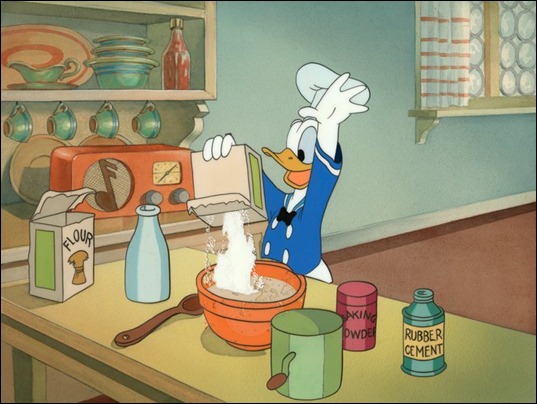Last week, in response to our post Helpful Labels – The Kitchen a reader asked me: “how would you express that you are cleaning/tidying up? I believe that in Italian, it is expressed as putting things in order, or in their place? Also, what is the difference in saying that you are baking cookies vs. cooking (as in frying meat on the stove) or roasting something? All different verbs? To bake, to cook, to roast? Would you use the verb fare to say you are “making cookies”? Grazie!”
Cavoli, quante domande in così poche righe! (Wow, so many question in so few lines!) However, as I believe that my reply could be useful to a lot of you I’m going to answer the questions with a post.
“How would you express that you are cleaning/tidying up?

1. pulire = to clean, e.g.:
pulisco il lavandino = I’m cleaning the sink!
pulisci le verdure per il minestrone, per favore = clean the vegetables for the minestrone, please
ieri ho pulito il forno = yesterday I cleaned the oven
We also say fare le pulizie (literally: to do the cleanings) for general household cleaning:
tutti i lunedì Luisa va a fare le pulizie da mia mamma = every Monday Luisa goes to clean my mother’s house
2. mettere in ordine (to put things in order) or mettere a posto (to put things in their place), e.g.:
finisco di mettere in ordine la sala e poi vado a cucinare = I’ll finish tidying up the living room and then I’ll go and cook
hai messo a posto la tua camera? = have you tidy up your bedroom?
“What is the difference in saying that you are baking cookies vs. cooking (as in frying meat on the stove) or roasting something? All different verbs? ……

In Italian we have two verbs that mean ‘to cook’: cucinare and cuocere:
1. Cucinare describes what the cook (il cuoco, masc. or la cuoca, fem.) does, from washing and peeling to mixing ingredients and baking or boiling, etc:
Madalina è molto brava a cucinare = Madalina is very good at cooking
oggi cucino/faccio la pizza = today I’m going to cook/make pizza
2. Cuocere on the other hand refers to what happens to the ingredients when they are heated:
gli spaghetti cuociono in 11 minuti = spaghetti cooks in 11 minutes
le patate stanno cuocendo = the potatoes are cooking.
3. cuocere al/nel forno – baking (lit. to cook in the oven):
le patate stanno cuocendo nel forno = the potatoes are baking/cooking in the oven
cuocere la pizza nel forno caldo per 20 minuti = bake the pizza in a hot oven for 20 minutes
As for ‘baking cookies’, ‘baking a cake’, and so on, we say fare i biscotti (to make biscuits), fare una torta (to make a cake), etc.:
voglio fare dei biscotti al cioccolato = I want to make/bake some chocolate biscuits/cookies
Madalina sta facendo la crostata ai frutti di bosco = Madalina is making/baking a tart with fruits of the forest
You can find more cooking verbs in this post: IN CUCINA







Comments:
andrej:
Salve Serena
Grazie per il blog. Ma ho una domanda: Si dice ‘da mia mamma’ o ‘dalla mia mamma’. Voglio dire ‘mamma’ è una parola alterata. E ho letto nelle regole che va usata con articolo.
Saluti da Andrej
PS: Felice Anno Nuovo
Serena:
@andrej Salve Andrej!
Si può dire in tutti e due i modi, con e senza l’articolo perché oggi mamma e papà sono considerati due vezzeggiativi (forma affettuosa) di madre e padre. Però quando ero bambina io era sbagliato usare l’articolo davanti a mamma e papà, quindi esistono tutte e due le forme. La lingua si evolve continuamente!
Tanti auguri di buon anno anche a te!
Serena
andrej:
Grazie